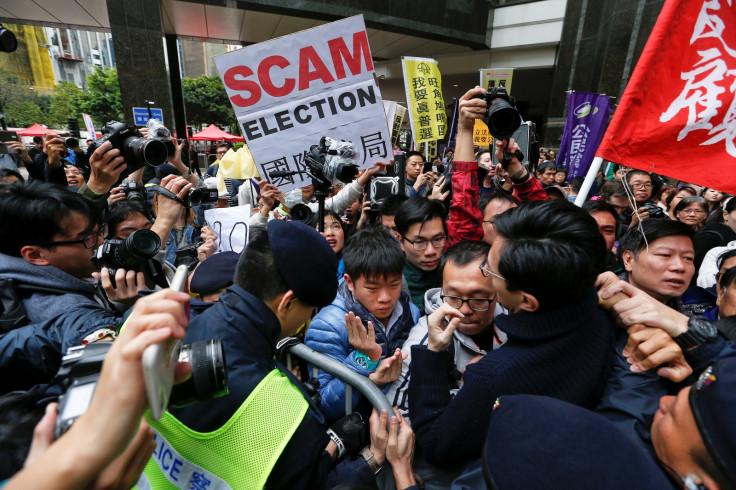Hong Kong braces for new leader as pro-China committee set to elect Beijing backer
Carrie Lam is widely tipped to become Hong Kong's new chief executive as minor protests witnessed in city.
An election committee comprising Beijing loyalists is set to elect the next leader of Hong Kong defying calls for a public vote from pro-democracy campaigners. The panel, representing just 0.01% of Hong Kong's population and mostly made of the city-state's elite, started voting for a new chief executive election on Sunday (26 March).
Carrie Lam, 59, the current deputy leader, is widely tipped to win as two others John Tsang and Woo Kwok-hing are not likely to give her a tough competition. With the winner being picked by 1,194 members of the Election Committee, protests are expected as the people are demanding for radical political reforms in the quasi-autonomous state.
The candidate who receives 601 votes will be announced as the winner and if there is no credible decision in the first round, two more rounds will be held.
Hundreds of police officials have been deployed across the city to avoid any untoward incident – unlike the earlier pro-democracy demonstrations and "umbrella movement", which triggered a series of arrests in 2014.
The sitting chief executive, Leung Chun-ying – termed a Beijing-leaning leader – will complete his five-year term in July 2017. However, activists have been accusing China of excessive interference in the election process using the "one country, two systems" policy and leaving the city's 7.3 million population with no say in the voting.
"The central government has intervened again and again. It's very unjust," Carmen Tong, a 20-year-old university student, told Reuters. Several demonstrators were seeing carrying placards and banners at the polling site, chiding the election process despite police cordoning off the area.
Some activists had called for mass rallies, but admitted that the number of supporters was disappointing. Civil Human Rights Front, one of the groups that spearheaded protests in the past, had earlier said they thousands of anti-China protesters to take part in the protests.

© Copyright IBTimes 2024. All rights reserved.






